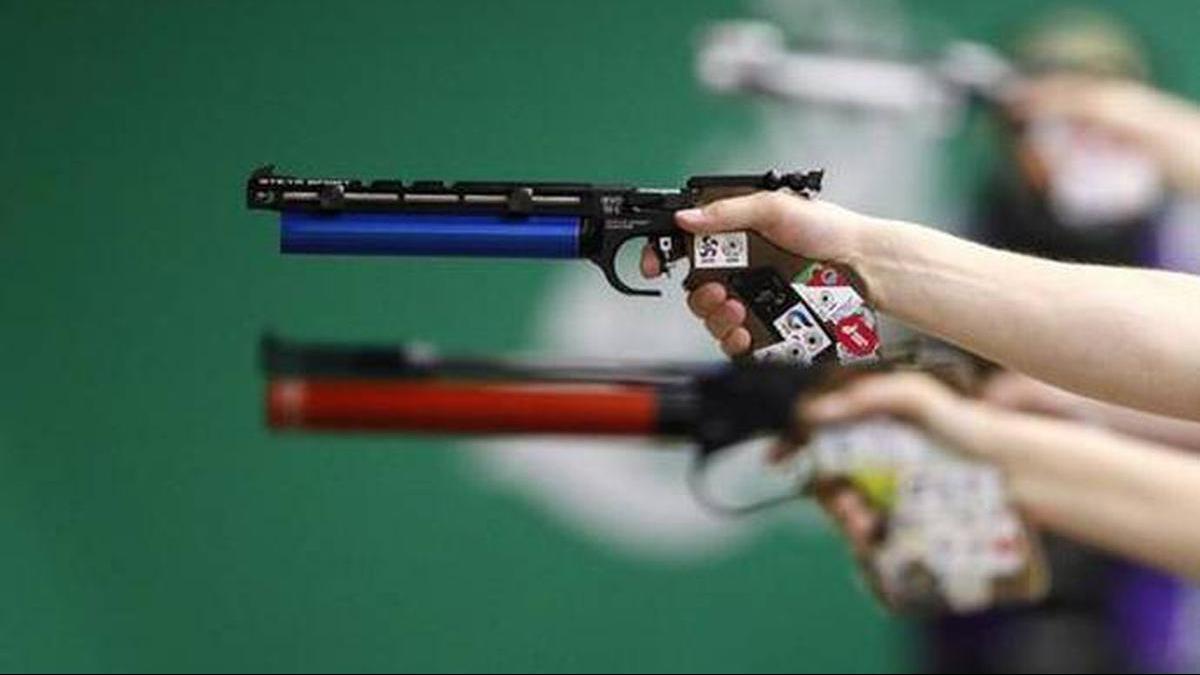
Focus on Indian shooters’ performance in World Cup ahead of Paris Olympics
The Hindu
Indian shooters prepare for Paris Olympics at ISSF World Cup in Munich, facing personal coach controversy and Olympic selection challenges.
Away from the oppressive Indian summer, the country's shooters would be hoping to further fortify their preparations ahead of the Paris Olympics when the ISSF World Cup (Pistol/Rifle) commences in Munich on June 1.
Several shooters, who recently appeared in the gruelling nearly month-long trials in New Delhi and Bhopal, were keen to skip the World Cup because of "fatigue" and to focus on their Olympic preparations.
But with the National Rifle Association of India (NRAI) making participation in WC compulsory, and also reportedly thrashing out the contentious issue of personal coaches with the shooters, the Paris-bound pistol and rifle marksmen would like to use this last competitive outing to gauge their preparations for the Olympics.
The issue of personal coaches had become a major point of contention. The shooters felt that there was little "flexibility" being given to them vis-a-vis personal coaches at the national camp.
Though the issue seems to have been sorted for now, many personal coaches would not have accompanied their wards as the federation's decision came on the day the shooters were leaving for Munich.
With several shooters having displaced the original Paris quota winners in the national squad following a series of four Olympic Selection Trials (OST), the federation would also be keen to see how they perform in the World Cup.
Someone like rookie Army man Sandeep Singh coming out of nowhere to top the national trials and push former world champion and Paris quota winner Rudrankksh Patil out of Olympic contention has put the federations in a fix.

“Writing, in general, is a very solitary process,” says Yauvanika Chopra, Associate Director at The New India Foundation (NIF), which, earlier this year, announced the 12th edition of its NIF Book Fellowships for research and scholarship about Indian history after Independence. While authors, in general, are built for it, it can still get very lonely, says Chopra, pointing out that the fellowship’s community support is as valuable as the monetary benefits it offers. “There is a solid community of NIF fellows, trustees, language experts, jury members, all of whom are incredibly competent,” she says. “They really help make authors feel supported from manuscript to publication, so you never feel like you’re struggling through isolation.”

Several principals of government and private schools in Delhi on Tuesday said the Directorate of Education (DoE) circular from a day earlier, directing schools to conduct classes in ‘hybrid’ mode, had caused confusion regarding day-to-day operations as they did not know how many students would return to school from Wednesday and how would teachers instruct in two modes — online and in person — at once. The DoE circular on Monday had also stated that the option to “exercise online mode of education, wherever available, shall vest with the students and their guardians”. Several schoolteachers also expressed confusion regarding the DoE order. A government schoolteacher said he was unsure of how to cope with the resumption of physical classes, given that the order directing government offices to ensure that 50% of the employees work from home is still in place. On Monday, the Commission for Air Quality Management in the National Capital Region and Adjoining Areas (CAQM) had, on the orders of the Supreme Court, directed schools in Delhi-NCR to shift classes to the hybrid mode, following which the DoE had issued the circular. The court had urged the Centre’s pollution watchdog to consider restarting physical classes due to many students missing out on the mid-day meals and lacking the necessary means to attend classes online. The CAQM had, on November 20, asked schools in Delhi-NCR to shift to the online mode of teaching.









